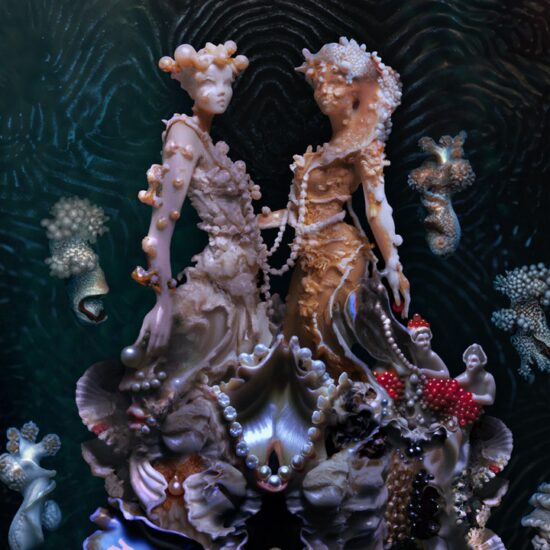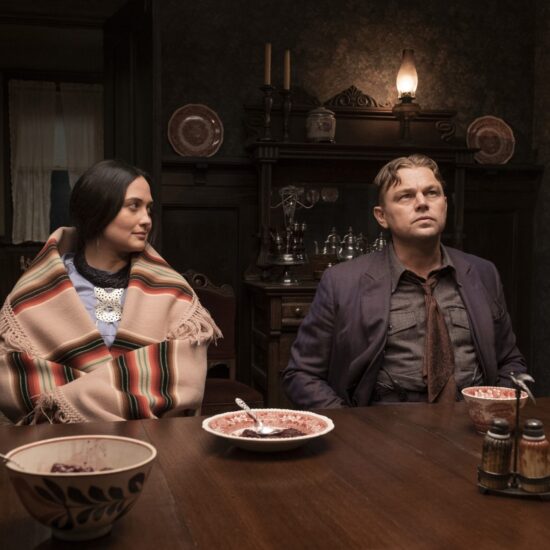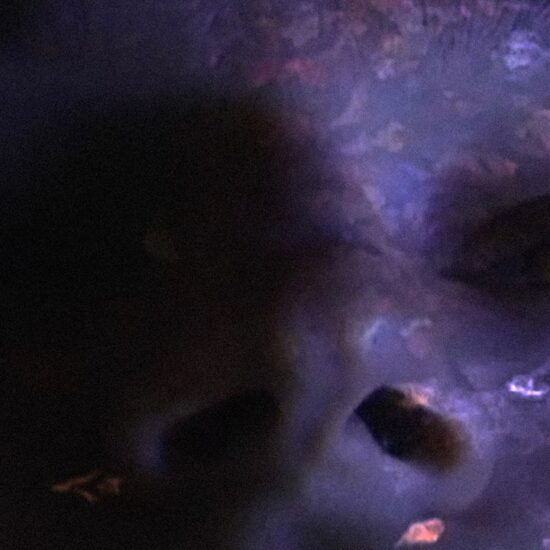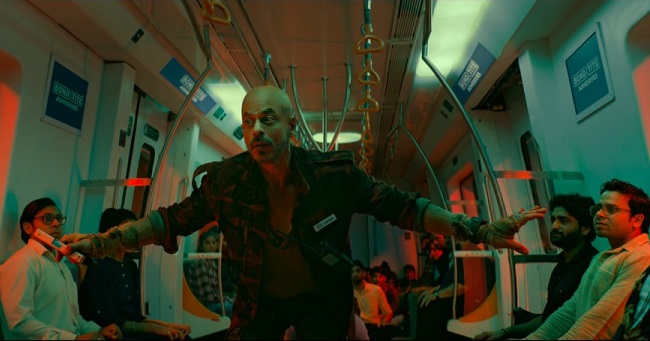
Jawan, Review: Eggs on the windshield
You can be pardoned for believing that Jawan is Pathaan rebooted, if you walked in as ShahRukh Khan (SRK) is lying half-dead on a bed somewhere near the Indian border (with which country?) and a chinky medicine man is spending days, and possibly weeks, using all kinds of herbs and other local Ayurvedic medicine to revive him. It was exactly the same in Pathaan, where he was nursed back by a Pathaan tribe. Obviously, the makers thought once is not enough, and gave us more of the same medicine (pun intended) in Jawan. After all, Jawan rhymes with Pathaan (never mind the missing second a after w in Jawan), released less than eight months ago. This time around, it is an SRK home production, which turns the Pathaan plot basis on its head and trains its sights on the internal enemies of the country. It matches Pathaan thrill for thrill, twist for twist, but runs out of steam along the way. Jawan is about a modern-day Bharat (Manoj Kumar), who believes in violence and mayhem to get his way, with thousands of hands to back him, state of–the-art IT and an arms and ammunition depot that would make any army camp blush. There are moments in Jawan that make you root for him, and there are moments that make you cringe. Unfortunately, it’s a draw between the two.
Jawan, in its dictionary meaning, stands for ‘young’. Here, however, it is made to represent a soldier, who, in army parlance, is often called Jawan. It begins with a group of chinky-eyed persons noticing a body floating up to the surface of a pond. The man, though seriously injured, is not dead. They decide to nurse him with traditional medicine. Suddenly, the village is attacked by enemy forces, who massacre a lot of them. The commotion wakes up the wounded man from his comatose like state, and he takes on the attackers, proving too much for them. The survivors among them beat a hasty retreat. The man then stuns everyone by asking them, “Who am I?” A little boy, who has taken a fancy to him, replies, “When I grow up, I will find out who you are.” In Mumbai, a metro train is hijacked en route and diverted to a workshop. The main hijacker negotiates with NSG (probably National Security Guard) officer Narmada Rai, to ask the government to send Rs. 40,000 crores+, in exchange for the passengers’ lives. Kaliee Gaikwad, who is the fourth largest global arms dealer, learns that his daughter Alia is also one of the captives on the train and agrees to give the money.
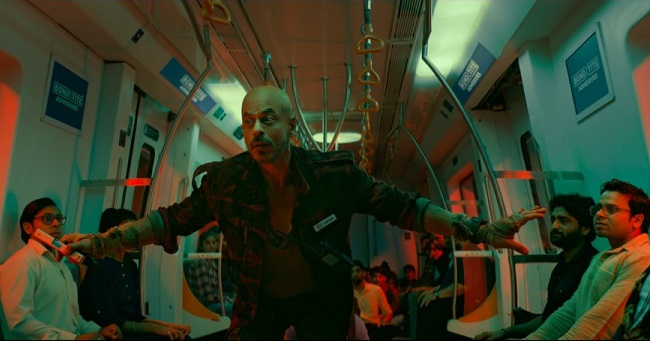
A concerted effort is made to trace the money, but the hijackers have donated it to lakhs of needy, deserving recipients, and the efforts prove futile. The gang, led by Azad Rathore, along with Lakshmi, Eeram, Ishkra, Kalki, Helena and Janhvi, returns to their base. Azad Rathore is the jailer of a woman’s prison in Mumbai, and the woman are its inmates. After the caper, they slip in unnoticed. Having tasted success, Azad and his gang put into play another plan, to kidnap the Health Minister, who has been claiming that Public Hospitals in the country are on par with Private hospitals, in every department, thanks to his own efforts. He challenges that if he were shot, he would prefer to go to a Public hospital. Sure enough, he is shot, as if on cue, by a member of the Azad gang, and kidnapped. As ransom, the gang demands that world-class infrastructure and facilities be provided to every Public hospital, in exchange for the Health Minister’s life. The infrastructure is immediately initiated. Azad and his gang manage to escape again, but this time they have to deal with Narmada and her team, who have traced them, along the way. Soon we shall see the entry of Azad’s doppelgänger, an older version who used to answer to the name Vikram Rathore.
Having all the trappings of a South film, with Telugu being my best bet, Jawan is the Hindustani debut of Atlee (Kumar), the pseudonym of Arun Kumar, who works in Tamil cinema. He has written the story, and the screenplay, jointly, with S. Ramanagirivasan. Both are guilty of trying too much, taking too much for granted and depending very heavily on the audience’s suspension of disbelief. Sumit Arora’s dialogue picks a couple of things from other films, but you cannot blame him for a giant being addressed as “Bahubali” and ShahRukh Khan saying “Alia Bhatt”, when asked what he wants. That must be part of the screenplay. It is exciting to learn that the protagonist is a jailer in a women’s jail. Then comes the disbelief. Why is there a male jailer in a women’s prison? How is it that his absences from duty are neither noticed or reported? How does a jailer get access to a caché of arms and several vehicles? What were the women, who help him, convicted of? Were they all innocent and framed? How is it possible for 6,000 inmates to rally around him, no questions asked? Why does he use a funny half-mask, which is worn alternately on each side of the face, and reminds you of the soldier who was rescued by the villagers?
Masses, in general, will identify with the issues Azad raises, and the flaws in government policies that he emends. The scene involving a farmer’s suicide, albeit taken a bit too far, will bring a lump to anybody’s throat. Who, among the lower class and lower middle class citizens would not like to see better conditions in Public/Government hospitals? Who could be a greater villain than an arms supplier who sells non-functional guns to the Indian army, using bribery to get the deals through, and causing loss of several lives in missions across the border? These are all rhetorical question.
Heroes in our films do not use conventional methods to address these emblematic problems. If they did, there would be no solutions, because corruption operates on a very high scale in our country and other crime is not far behind. So, they have to go beyond conventional approaches, and become larger than life characters, with almost super-hero like strength. But it is always a delicate balance that writers have to strike, between the barely believable and the totally incredible. Jawan leans towards the latter premise, with its protagonist being over-audacious and over-confident, able to get away with almost anything. The car/bike chases, car-jackings, use of smoke-screen and explosives, are all exciting while they last. The mask/wig scenes get repetitive, as does the use of a metallic belt as a weapon.
Shah Rukh Khan, in a dual role as Vikram Rathore and Azad Rathore, Vikram’s son, is nothing if not confident. He plays with his voice too. Except for a tiny bit when he is captivated by a single mother, there is no romance that he indulges in. For a romantic hero, Pathaan and Jawan might mark a complete departure from his romantic poster-boy image of yore. I wonder whether ‘King Khan’ will undertake more romantic assignments now, touching 57 this year. As Vikram, he seems a bit lost, but that goes well with the character, who has lost his memory. His speeches, whether on the negotiation line, or on his Jail winning a UNO recognition, are well delivered. First billed, Nayanthara (Diana Mariam Kurian, who has worked in the past with Atlee) as Narmada, is a seasoned veteran. Though she performs perfectly, her role is not very well written. Vijay Sethupathi, making his Hindustani debut, as the arch villain Kaalie Gaikwad, saddled with a Maharashtrian surname, is a let-down. Vijaya Gurunatha Sethupathi, now 53, predominantly works in Tamil films. Whether it is the language that bugs him, or he is not totally convinced about the role, one will never know. But, nevertheless, he has done the best job of reacting to bullets being pumped into him, a scene which most actors would deal with mechanically. Deepika Padukone, in a Special Appearance, as Aishwarya (what’s in a name?) adds star value and goes through her part successfully, but undistinguished.
In support, we have a large cast: Priyamani as Lakshmi, Sanya Malhotra as Dr. Eeram, Sunil, Grover as Irani, Sanjeeta Bhattacharya as Helena, Girija Oak as Ishkra, Lehar Khan as Kalki, Aaliyah Qureishi as Jahnvi, Riddhi Dogra as Kaveri and Eijaz Khan as Manish Gaikwad. These are all, apparently, members of Azad’s gang, except, of course, Sunil Grover, who is on the side of the law, and Eijaz Khan, who plays the villain’s younger brother, Manish. The girls are bubbly and deeply involved in the proceedings, though they do not have major roles. Sanjay Dutt as Madhavan Nayak (cameo appearance), has little to do. In the theatre, I heard his name as Madhavan Nair. You might not be able to find somebody called Madhavan Nayak easily. But there might be thousands of Madhavan Nairs. So, when he said that his wife is a Malayali and that the day was auspicious for him because it was the Keralite festival of Onam, I was surprised. Nair is a Malayali surname, so how come his wife is Malayali while he, a Nair, is not? Then I checked on the net, and stand corrected.
Slo mo is used in abundance and the camera movements by G.K. Vishnu are very fast. Editing by Ruben has reduced the film to 169 minutes. Does it make sense, though? Just about. Because cinema hall viewers might have to put up with another 20-25 minutes of ad films. Music by Anirudh Ravichander, as often happens in such action films, has little scope to impress.
A question his fans might ask: A South director, South writers, South heroine and a South villain – is SRK Southwards bound?
To end this review, I cannot help but recall a scene where the Azad gang is after the baddies, in a multi vehicle chase, and to stall their cars, the Azads through an anchor and hook one of them to a high lamp-post. Next, they throw eggs on the wind-shield of another car. Naturally, it crashes. Shows that even in a film as Hi-Tech as Jawan, you have to be anchored, and egged on. Eggzactly!
Rating: ** ½
Trailer: https://youtu.be/C_bCka4OBFI











